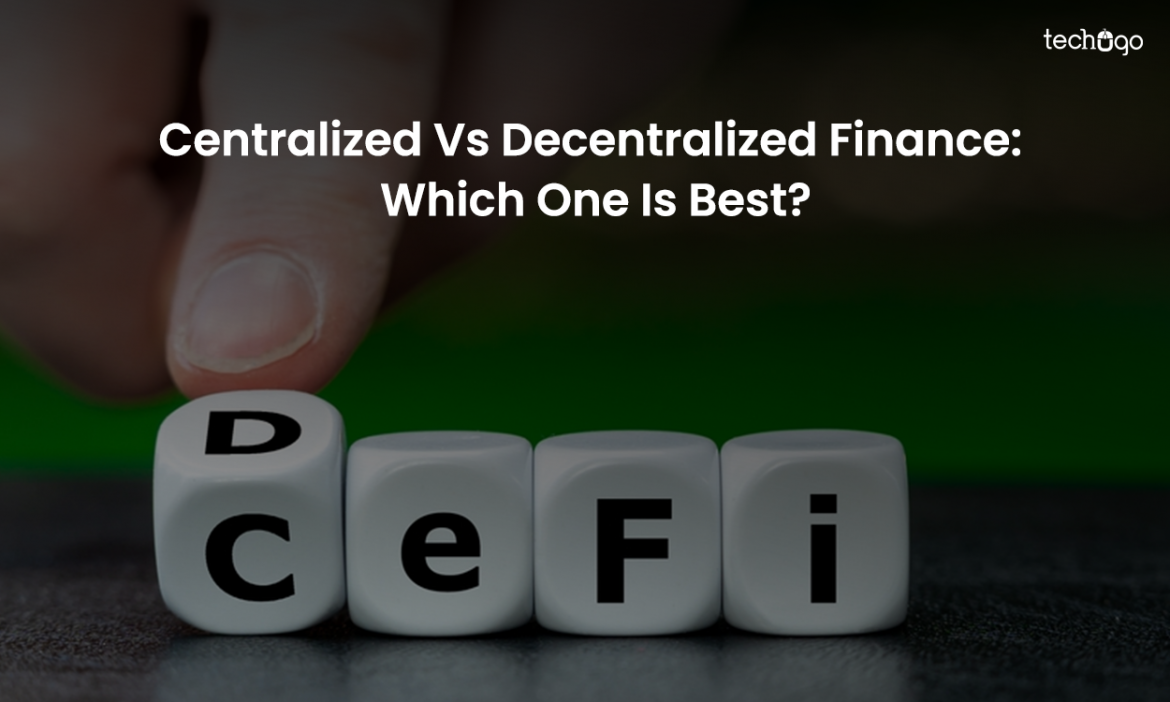Centralized finance is nothing like a new thing to the market as it is the traditional way of trade that has been opted for years. But with the advent of blockchain technology, the world has witnessed decentralized finance (DeFi).
In recent years, blockchain has gained momentum to get involved in every sector and promises a fruitful future. However, it gives enhanced security practices to your money; a little discovery is much needed to go ahead with this futuristic technology. Moreover, the world has been divided into centralized finance and decentralized finance.
So, which side are you on when it comes to investing in the future? Be it centralized or decentralized finance, you must have a thorough knowledge of these trading standards and wallets. If you don’t know how centralized and decentralized finance trading works, you may experience lots of trouble.
It is also important to keep your cryptocurrency secure through crypto wallets: custodial and non custodial wallets. So, learn everything about these wallets as well.
Besides, to beat the hassle, this post has come up with a close examination of both trading standards. So all you need is to go through the information explained below.
Centralized Vs Decentralized Finance: An Intense Tussle
Some parameters can help you identify which is best to trade in cryptocurrency. And to make the task easy for you, here is detailed information about decentralized and traditional finance.
Privacy
Decentralized finance is accessible via only blockchain technology, that too, with non-privacy-preserving smart contracts. It means pseudo-anonymity prevails in the name of anonymity for every decentralized exchange.
On the other hand, centralized exchanges through AML (Anti-Money Laundering) policies are the only possible way to convert money to cryptocurrency assets. Moreover, law enforcement can know the ownership of such exchanges.
Transaction Costs
For decentralized finance trading, there will be a transaction fee for every exchange, and such fees might not avoid spam. So, there is a chance of getting deceived by online breaches.
On the contrary, CeFi relies on AML verification of clients; the transactions services can take place at no cost. Or the government can help the client to provide some service for free.
Public verifiability
While the underlying DeFi application code might only sometimes be open-source, non-custodial DeFi must have publicly verifiable execution and bytecode on a blockchain. Therefore, unlike CeFi, any DeFi user may see and confirm that DeFi state changes are carried out correctly. Because of this transparency, the new decentralized finance technology has an unmatched ability to transfer trust.
Atomicity
Sequential actions, including several financial transactions, may be carried out as part of a blockchain transaction. Such a combination can be atomic, meaning the entire transaction will succeed or fail simultaneously. Unfortunately, CeFi does not have this programmable atomicity property. However, it may be possible to enforce atomicity in CeFi through expensive and time-consuming legal agreements.
Anonymous Development and Deployment
In CeFi, the users may experience less privacy than decentralized finance transactions. Even Bitcoin’s creator has remained suspicious to this point. Moreover, to develop and run such trading, many anonymous groups have taken DeFi initiatives to improve it. Once implemented, the DeFi smart contracts are implicitly run by the miners. Without a front end, anonymous DeFi applications can operate, forcing users to interact with the smart contract directly.
Which is Best: CeFi or DeFi?
Whether centralized finance or decentralized finance, both trading standards have the same purposes. They want to raise the trading volume and popularize cryptocurrency trading. However, these two approach their tasks in quite different ways.
CeFi works by developing trust along the way. It gives the assurance that money will be handled fairly and securely. Its conversions between money, cryptocurrency, and fiat are also more inclusive. Trading in cryptocurrencies is also open to investors using fiat money. Additionally, CeFi exchanges provide them with customer support services that DeFi services frequently do not.
DeFi, on the other hand, wants to make the sector free from intrusion. It gives investors a place to put their plans into practice without working through an intermediary.
Both methods have advantages and disadvantages. The investor’s priorities will determine which one is good to choose. For example, DeFi is the route if confidentiality and openness are essential considerations. On the other hand, select CeFi if you’re worried about trust, risk sharing, investment possibilities, and flexibility.
Final Thought!
Since it involves money and requires lots of understanding, assistance from experts is necessary. You can contact any blockchain expert to get solutions for your queries. Therefore, contact the top blockchain solution provider and enjoy trading with cryptocurrency.


